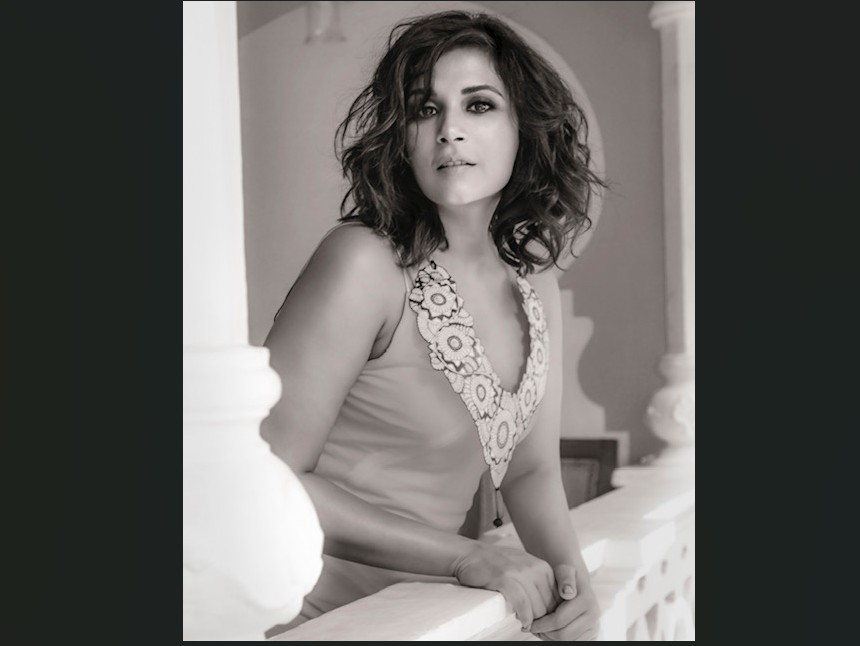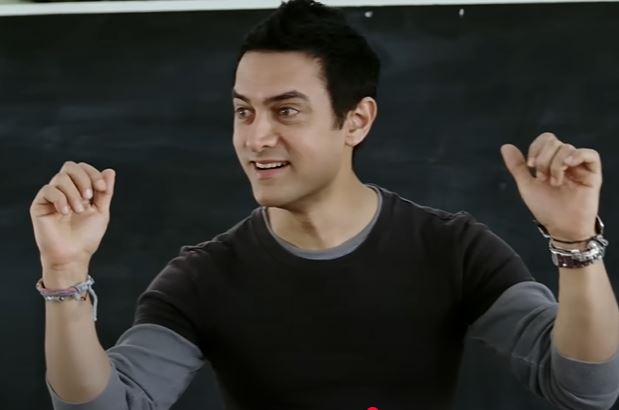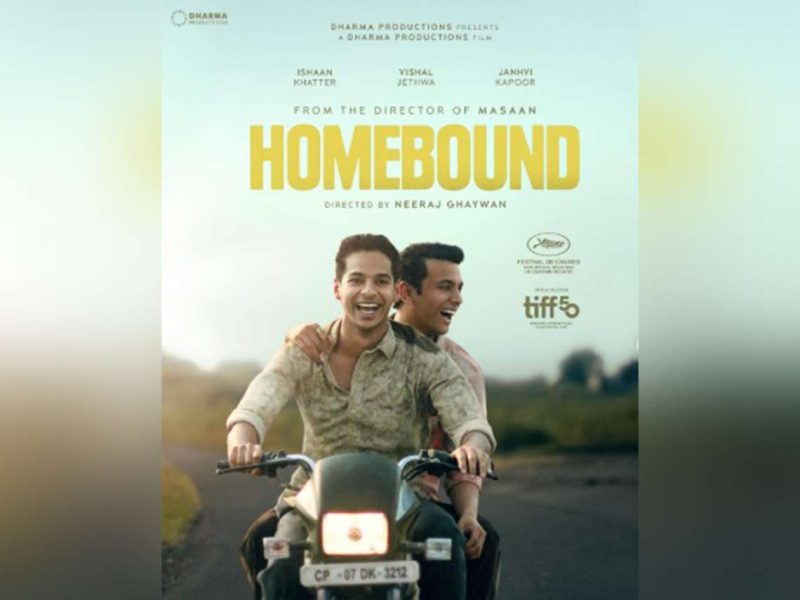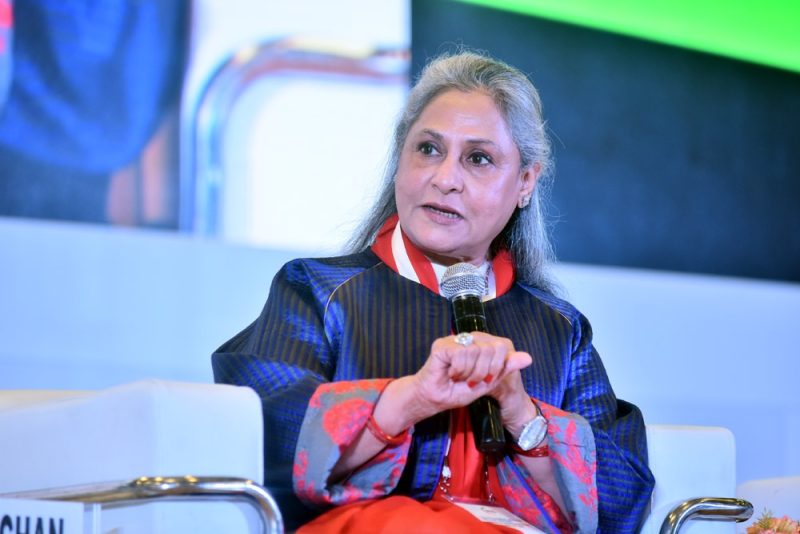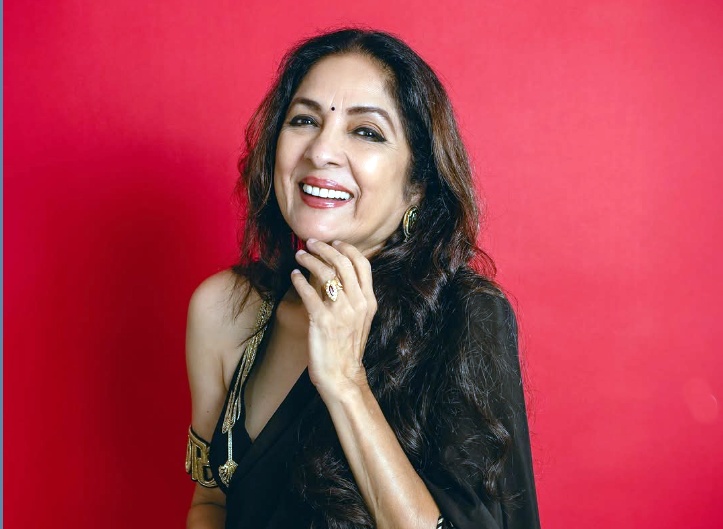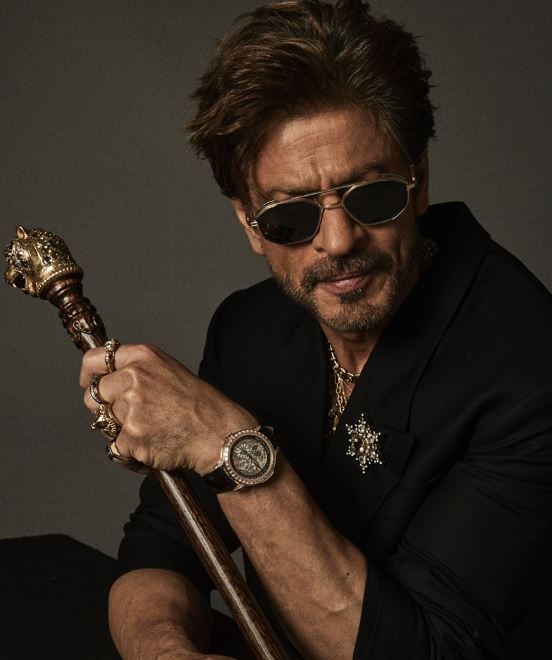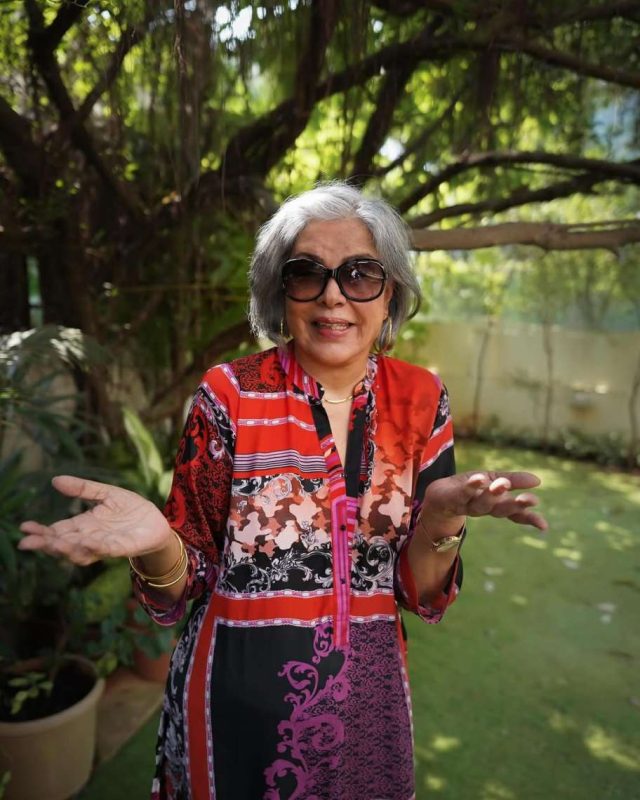Girls Will Be Girls’ is set in a strict boarding school nestled in the Himalayas, where 16-year-old Mira discovers desire and romance, however her sexual, rebellious awakening is disrupted by her mother who never got to come-of-age herself. Written and directed by Shuchi Talati and produced by Richa Chadha, Claire Chassagne and Shuchi Talati, the film stars Preeti Panigrahi, Kani Kusruti and Kesav Binoy Kiron. Columnist Richa Grover (RG) in conversation with film producer Richa Chadha
RG: What inspired you to start making this film, and what do you hope to achieve with it?
RC: I wanted to have more creative control over the kind of stories I’m involved in. As a writer, I’ve been in enough rooms where decisions are ultimately shaped by marketing budgets and distribution strategies, often at the expense of the story. For me, it’s not about getting a film released on 1,000 screens across India; it’s about finding the right audiences in key metro centers who would appreciate a film in English or other niche formats. I’ve always wanted to tell more diverse and authentic stories that reflect who I am. Starting to produce was a natural progression because I see the future of filmmaking as being more democratized, like with content creators across platforms like Instagram, TikTok, and YouTube. I think we’re all becoming content providers in some way. When it comes to my acting career, my last two projects were quite different — Fukrey was fun, emotional, and family-friendly, while Heeramandi is more grand and visually polished. Both reflect my journey as an artist, exploring different narratives and styles while staying true to my desire to tell and be a part of meaningful, authentic stories.
RG: How does your film explore the theme of teenage sexuality and growing up?
RC: The film really taps into the experience of growing up. For me looking back especially as a ‘90s kid-Back then, figuring out how to communicate with your crush was an art form — you’d call them on their landline, give a missed call at 9:30, then pretend to go to bed, only to sneak in a conversation later on. It feels almost nostalgic now, and I think it’s something a lot of teenagers from that era can relate to. What I wish for, though, is that more films would talk about sexuality openly, without feeling uncomfortable or squeamish. Whether it’s male or female sexuality, we need to discuss it honestly because it’s connected to how we’re socialized to view the opposite gender. In India, especially, the lack of comprehensive sex education and safe spaces to talk about these topics can lead to misconceptions and, often, harmful ideas, including internalized misogyny.
One of my concerns, especially as a new parent myself, is the impact of the explosion of internet data. In 2016, when free data became available in India, many children as young as 12 or 13 were given smartphones, but they still lacked proper sex education. Without guidance, many of them may turn to the internet, which could lead to distorted views of sexuality. My worry is that these young people might have misconceptions about consent, respect for women, and their own understanding of relationships. This is an issue that needs more attention in our society.
Films like Girls Will Be Girls are important because they don’t shame the girl for her natural desires and they let her be confident in her own skin. It’s crucial to show that young people — especially young girls — should not be made to feel guilty or embarrassed about their sexuality. Instead, they should be allowed to explore it freely and with confidence.
RG: How does Girls Will Be Girls give agency to women and challenge traditional narratives about female sexuality?
RC: It feels like there’s a global war on women. In places like Iran, women are being executed just for not wearing the headscarf, and in Afghanistan, they’re simply fighting to exist, unable to go to school. In India, we are constantly in the news for the mistreatment of women — whether it’s horrific headlines about violence or societal repression, it’s an issue that rears its ugly head time and time again. Ironically, during the season of Durga Puja, where the entire country worships the goddess, the same society continues to treat women so poorly. This is happening everywhere, including urban areas, and it’s a deeply ingrained and complex issue.
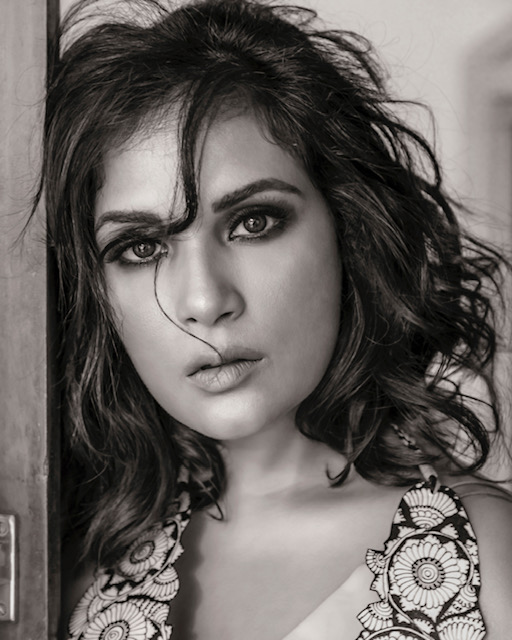
I believe Girls Will Be Girls is so timely — it’s a film that is both gender-positive and doesn’t repress sexuality. It doesn’t take that for granted either. I think one of the most beautiful aspects of the film is the protagonist’s point of view. It’s so tender and respectful, and the way it’s enacted by such a talented young actress, Kani Kusruti, is truly brilliant. She’s a legend in the making. We were so fortunate to discover her in an open audition, and her performance is exceptional. We also had a wonderful team, including a non-mainstream casting director and a brilliant director who truly brought this vision to life. We’re incredibly lucky to have such a beautiful cast, and I’m proud of the work we’ve done.
RG: It is impressive that a young actor was able to deliver such a great performance, especially given her age and the cultural pressures in India? It must have taken a lot of preparation to tackle such a mature role.
RC: She (the young actor) did several workshops to prepare, and Dilip Shankar, the casting director, was incredibly detail-oriented and thorough in ensuring everything was in place. He paid great attention to how the actors were shaped for their roles. After the workshops, we were able to work on improvisations within the scenes, which was essential for both Ali and me as actors. We wanted to create a safe space for everyone, even though it was an indie film with a limited budget. But I’m confident it will be a film that gets talked about because of the maturity with which it portrays its characters. Even the character of the mother is portrayed thoughtfully — a young mother who feels stifled and unfulfilled, constantly needing to prove that her daughter is her priority, yet also enjoying a bit of attention. There’s no judgment in that. It’s a beautiful, healing process between two generations of women. I truly hope that other filmmakers and creators will trust us enough to produce more narratives like this in the future.
RG: In this film it’s interesting how the daughter doesn’t get annoyed with the mother, and at times, the mother gets frustrated with the daughter but doesn’t vocalize it. It’s almost cathartic, because typically, we might expect a confrontation, but it doesn’t happen. How do you view this dynamic?
RC: That simmering tension in the film is something that really makes it both watchable and beautiful. It creates an almost thriller-like atmosphere, especially in that one pivotal night when the characters can’t decide where the mother and daughter should sleep. Without giving too much away, that moment of tension is really compelling. What’s most striking is how the scene ends — both women come to a mutual understanding, and there’s something truly beautiful about that. I’m not sure it would have been portrayed the same way if the story were told from a male perspective.
RG: The film portrays subtle tensions between generations and genders. Given that such topics aren’t discussed as openly, how do you think films like this can help start conversations in communities, especially within Asian families, where these subjects are often not addressed?
RC: It’s never an easy conversation, whether it’s from the child’s side, having the “birds and bees” talk with parents, or learning about their parents’ sex life. But that’s exactly why South Asian communities, particularly the Indian community, need to introspect. There’s clearly something we’re doing wrong. We’re experiencing an explosion in population, and this isn’t happening in a vacuum — it’s because men and women are coming together to reproduce. We need to talk about it openly, without shame or stigma.
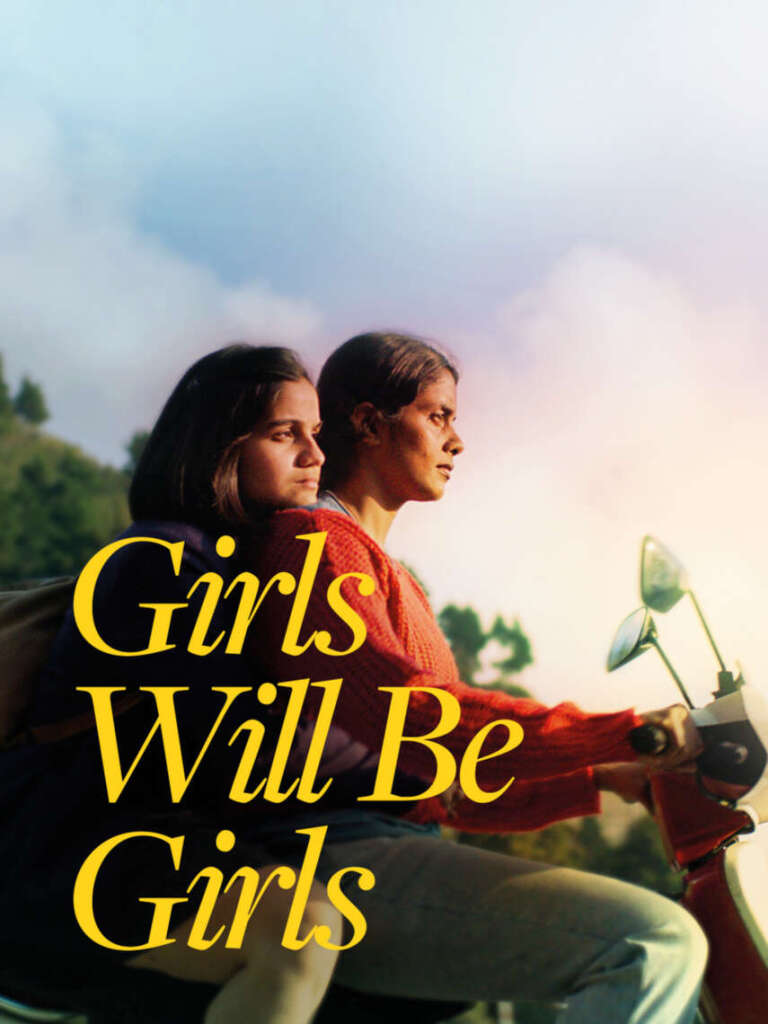
I honestly believe our film is more tasteful, tender, and respectful than many mainstream representations of women, which often objectify them with close-ups of cleavage, navels, or buttocks. Here, we show an honest, authentic expression of a woman’s desire. It’s interesting how the story comes full circle, and it’s wonderful to be part of a narrative like this that provides a fresh, respectful perspective.
RG: Do you think India is ready to normalize discussions around these topics, and how do you think the film will be received by Indian audiences?
RC: India is diverse and I believe the English-speaking audience, especially those familiar with the dynamics of boarding schools or the 90s nostalgia, will connect deeply with this film. At its core, it’s not just about sexuality; it’s about the relationship between a mother and daughter, and the complexities of female bonds. The feedback from Indian viewers so far has been incredibly positive, and they’ve really embraced the film. We hope that response continues to grow as more people see it.
RG: Do you have any other projects in the pipeline that you’re working on?
RC: Yes, we’re producing a few things at the moment. We’re developing a show and also working on an animated series aimed at young adults. Plus, there’s a film in the works as well.


